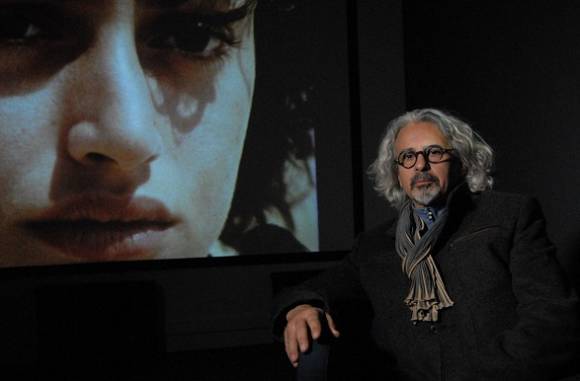The veteran Tunisian director Nacer Khemir, who reflects the traditional and mystical elements of the North African, Arabic and Persian cultures in his films while creating a fairy world inspiring the audience, will grace the 7th Malatya International Film Festival as the jury president of the International Feature Film Competition. Khemir will also be presented with the Honor Award at the opening ceremony on the evening of November 9th. And the remastered copy of his feature debut, Wanderers of the Desert (1984), which was screened at the Venice Film Festival’s Classics section this year, will also be screened at the festival.
Khemir’s films are compared to “One Thousand and One Nights,” and interpreted as the adaptations of the story tradition of the Arabic and Persian cultures, as well as the mystical philosophy. Besides being a filmmaker who won awards at prestigious film festivals such as Locarno, Cinema du Reel, Valencia, Kartaca, Ouagadougou, and Nantes, he was also honored with an award under Henri Langlois’s name in Paris, who was a legendary figure in the history of cinema. Khemir is a world-renowned director for his films “The Dove’s Lost Necklace” and “Bab’Aziz” but he’s also a versatile artist mastered in theater, literature, calligraphy and sculpture, whose 11 books have been published in France.
Khemir was born in Korba, Tunisia in 1948. He received the UNESCO scholarship to study film in Paris. He gained his first international artistic reputation with his book, L’Ogresse (1975), in which he calligraphed his researches and stories on the storytellers in the Medina of Tunis. In 1980, his calligraphic artworks were exhibited at the Centre Pompidou in Paris.
Every night for a month in 1982 and 1988, he told the stories of the Thousand and One Nights with his own interpretation at the National Theatre in Chaillot, on a stage designed by Yannis Kokkos. Before he began his film career, he was a storyteller on stage.
Besides literature, he also worked on Islamic philosophy and mysticism. In 1976, Khemir made his directorial debut with the medium-length film “L’Histoire du pays du bon dieu,” which manifests the director’s philosophical tendency through the protagonist seeking the borders of an unknown country.
In 1984, he made “Wanderers of the Desert,” the first film of the trilogy which would later be called “Desert Trilogy.” The film won the Golden Ballon at Nantes in 1984, and the Golden Palm at Valencia in 1985. The second film of the trilogy, “The Dove’s Lost Necklace,” which was filmed in 1991, won the Golden Bayard for Best Artistic Contribution at the Namur International Festival of French-Speaking Film, and the Special Jury Award at the Locarno International Film Festival. The Dove’s Lost Necklace is a fairy tale in which Hasan, a calligrapher’s apprentice enchanted by the image of the Princess of Samarkand, seeks the 60 names of love. Bab’Aziz, the final film of the trilogy which holds the audience spellbound with its fascinating story, won the East-West Coexistence Award at the Beirut Film Festival and the Crystal Simorgh Award at the Fajr Film Festival in 2005, and the Golden Dagger for Best Film at the Muscat Film Festival in 2006.




















